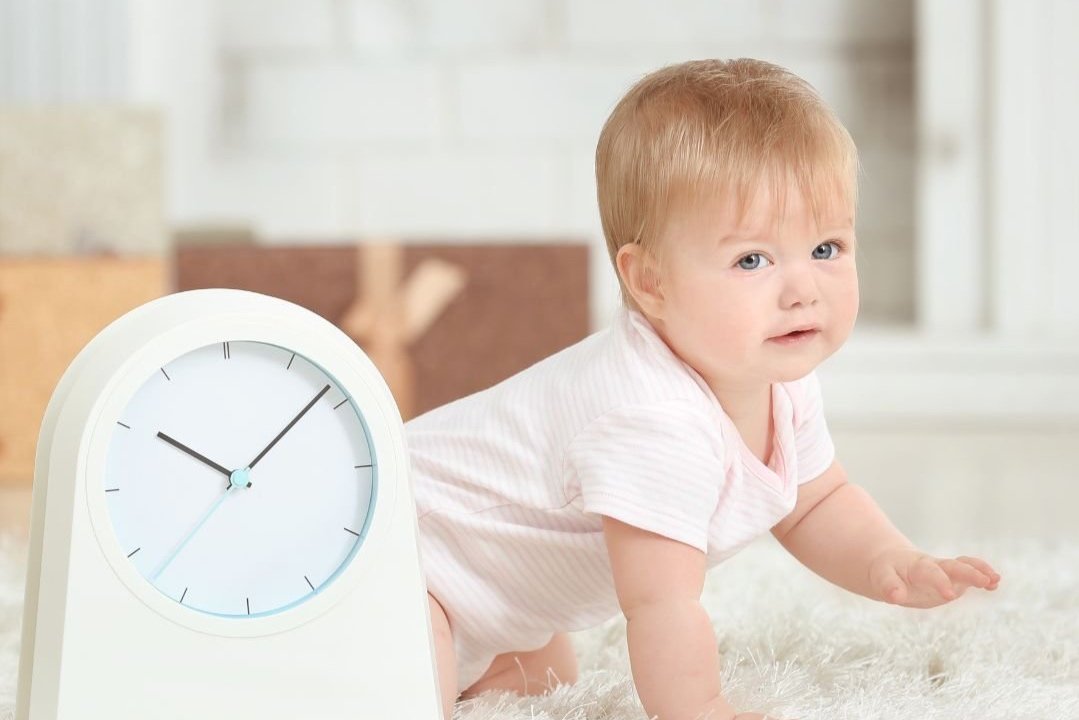How to Boost Fertility Naturally
Trying for a baby should seem like the most natural and easiest thing in the world. But in truth, it can often be very difficult, with at least 1 in 6 couples who experience problems to the extent that they need help or treatment.
The best approach to improving fertility looks at several factors contributing towards making you and your partner the healthiest that you can be. The great thing is that there are so many things that you can naturally adjust in your lifestyle that can make a lasting difference not just to your own health, but also your baby’s. But the key is to invest in these changes as early as possible, that’s even before you think you want to get pregnant. These are the things that we aren’t necessarily told, but doing a little each day can add up to making a lasting difference.
So, here are the top changes I advise for anyone looking to have a baby, and which cover the main pillars of The Conception Plan. These will all help to maximise your natural fertility but also improve the chances of any treatment you may be needing to help you to conceive:
EAT WELL. This means looking at your diet as a whole and eliminating foods that have been influenced by hormones, by pesticides, by added preservatives and chemicals and foods that are rich in sugar. All of the above can have serious and harmful effects on your own body but can also influence the health of your baby through the process of epigenetics. What you eat can literally leave a transgenerational genetic footprint on your children, and also their children. This is why your diet is one of the most important aspects of fertile health. You want to be eating food in its cleanest most nutritious state possible, which means buying organic where you can and not over processing or over cooking the ingredients, and having a predominantly plant based diet of seasonal fruit and veg.
DITCH THE TOXINS - Be mindful of the toxic elements influencing our environment, from the water we drink, to the toxins found in cleaning products, to the make up we put on our skin, to the plastic we use to cover our food in. Whether we absorb the toxins via the gut or the skin, or in some cases inhale around the house, the combined surface area of these organs is massive, and whatever is absorbed can get into our blood stream and end up being harmful to our hormones that control fertility, as well as the eggs and sperm. The average woman carries over 120 toxins each day, whether it comes from the products she uses on herself, to the air she inhales! There are so many pollutants that we cannot avoid being exposed to when we step outside, but we need to be focussing on the environment we can control inside our homes, and what we put into and on to our bodies. Always try and use products in their most natural state because again, much like with food, the repercussions are not just on our own bodies and health, but on our babies’ health and their development. Some recent studies have also shown toxins influencing sperm DNA which can be passed on to offspring and have been linked to obesity and other health issues in the child.
STOP SMOKING (& LIMIT ALCOHOL) - You absolutely need to stop smoking (even e-cigarettes, though the evidence for this is not yet uncovered) as this can cause damage the lining of the womb, the eggs and sperm, but also adversely affect the health of your child, not to mention cause all sorts of complications in your pregnancy. You also need to stop any recreational or unnecessary medicinal drugs (consult with your doctor on this beforehand) and minimise alcohol or avoid it altogether. All of these can affect your hormone health, but also lead to developmental problems in the baby. Alcohol can also lower libido, cause damage to sperm and the liver. The liver is the main organ in the body responsible for deactivating toxins. If the liver is preoccupied or overburdened with processing alcohol or other damaging substances, then it can’t do one of its other major jobs which is to clean up any toxins or hormones made in the body that need to be deactivated, otherwise they themselves start to have harmful side effects on your fertility.
CONSIDER YOUR STRESS LEVELS - Stress reduction and keeping caffeine (which is a stress activator) to a minimum or avoiding altogether is crucial. Though there is no proven association between stress and impaired fertility (this is very difficult to prove due to so many other so called confounding factors) there is a wealth of literature to point to the problem of too much stress and activation of the sympathetic or fight or flight response, leading to raised cortisol levels and a permanent state of high alert. This can then start to create an imbalance in your fertility hormones, but can also affect other organs in your body, leading to high blood pressure, problems with sleep, lowered libido and resorting to unhealthy lifestyle choices, such as eating too much sugar for comfort, drinking alcohol or smoking. It becomes a vicious circle. Meditation, yoga, mindfulness, being outdoors in nature, or spending time with close friends can all help.
GET YOUR BEAUTY SLEEP - Start focusing on sleeping well and ensuring your bedroom becomes a sanctuary that is conducive to sleep. This means clearing out the clutter, not using any electrical devices such as TVs and mobile phones before bed time, and ensuring the room is dark enough to allow you to get the crucial 7-8 hours sleep a night that most of us need to be able to function well. Sleep not only helps to combat stress, and improve libido, but it’s vital to processing unnecessary and harmful substances in the body that are made each day, and also boosts immunity, something else that’s really important when it comes to fertility. In addition, good quality sleep can help with weight loss.
BOOST YOUR IMMUNITY - On the theme of immunity, there is growing recognition of the importance of the microbiome within our bodies and how important this is to our overall health as well as fertility and your baby’s immunity. To address this, it may be important to look at eliminating any upsets in this that can be detected through blood tests, but also hair or urine analysis that could also be helpful. Take a probiotic supplement and consider eating more fermented foods to help. Your gut is often referred to as your second brain, because so many substances made in the brain are also made in the gut, including serotonin. We need this to help enhance our overall sense of wellbeing, so the microbiome is important for this too.
CONSIDER CONTRACEPTION - If you have been on a long term contraceptive, in particular the oral contraceptive pill, be aware that they may cause deficiencies in certain vitamins and minerals that your body requires for optimum fertility, which is even more reason to eat nutritiously and take a good multi vitamin supplement. In addition, the oral contraceptive pill can cause imbalances in a range of different hormones, that can take some time to regulate and return to their optimum state. Though the pill may cause a short term dip in fertility but long term it’s reassuring to know that it has not been shown to impact on this. If you are looking towards pregnancy soon, try to consider alternative more natural means of contraception that you can discuss with your doctor, such as natural cycle monitoring, which will also encourage you to understand your own body better and its pattern of behaviour.
START MOVING - Exercise to help boost your circulation to your reproductive organs and also to help you maintain a healthy body and mind. Exercise can also help to reduce stress but too much or being over vigorous can do the opposite, so be mindful and aim for that which is realistic and achievable for you. This will also help you to keep weight within the normal range that is vital for fertility and helps to reduce the chance of miscarriage.
HAVE SEX - Have sex often and throughout your cycle. Too many people become too preoccupies with the fertile window which can make sex a militaristic operation rather than a pleasure! Sperm can survive in the reproductive tract for several days, and recent studies are suggesting that the conventional advice of abstaining for a few days in between is perhaps wrong and that actually sperm performance may improve with regular even daily intercourse. So be spontaneous and remember to enjoy sex – orgasm may be helpful in aiding fertilisation too.
ADD A SUPPLEMENT - Get yourself on a good multivitamin supplement a few months before you start to try but remember that this is not an alternative to a good diet, the two must go hand in hand. For men, a supplement rich in antioxidants like vitamin C, E, selenium, zinc and garlic can support healthy sperm. Women should look towards a vitamin supplement that delivers the required dose of folic acid, iodine and vitamin D and a range of other vitamins and minerals required for conception and a healthy pregnancy. Omega 3 is also important for both men and women as it influences the development of the baby’s brain and IQ.
ENJOY - Appreciate the moment you’re in and don’t compare or only focus on the negative of not having yet got your baby. So many couples I see lose confidence over this and start to feel worthless in the process of trying, but what many forget is that the time they spend trying is never wasted. It is always an opportunity to improve your health for the sake of your fertility, but also for the sake of your future baby. This is the time to be making that investment in your physical but also mental wellbeing that will serve you well not just on your baby making journey, but in the future too. Habits you form now will remain with you for the rest of your life, so invest in them wisely. And if you have any long term conditions that affect you, make sure you seek the advice of your doctor before trying, as you want to make sure that any medication that is necessary is optimised, and that it’s safe for you to start trying. And finally, please remember to be patient with yourself and your partner. Do not compare to other people and do not judge yourself. The process of conception is a beautifully complex one, that we don’t fully understand, there are so many factors influencing it, and the best you can do is be as ready as you can be by getting your mind, body and spirit as healthy as possible to welcome a pregnancy.
Words by DR LARISA CORDA
Dr Larisa Corda is an Obstetrician and Gynaecologist and is one of the UK’s leading Fertility experts. For more details please visit drlarisacorda.com
























